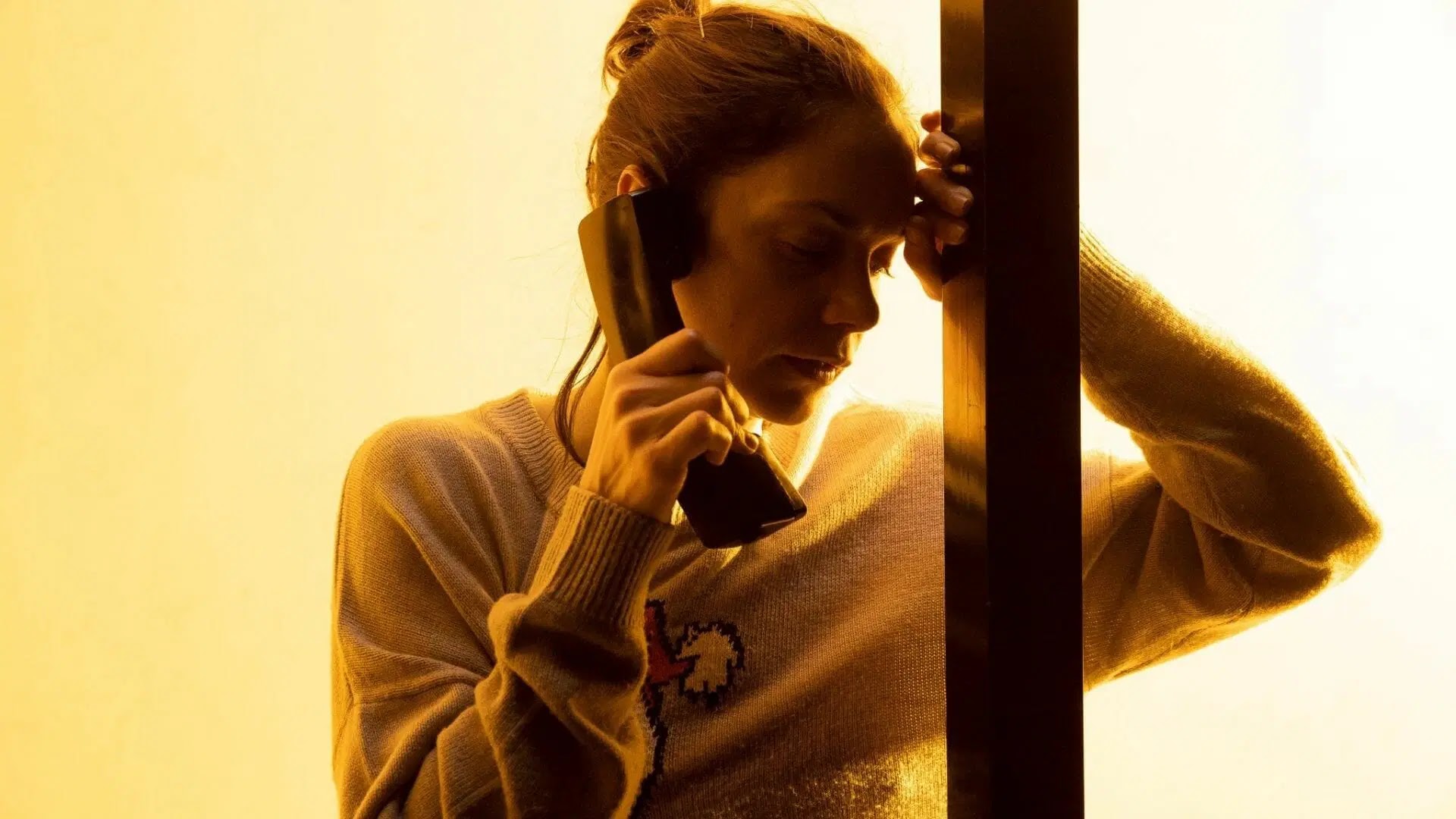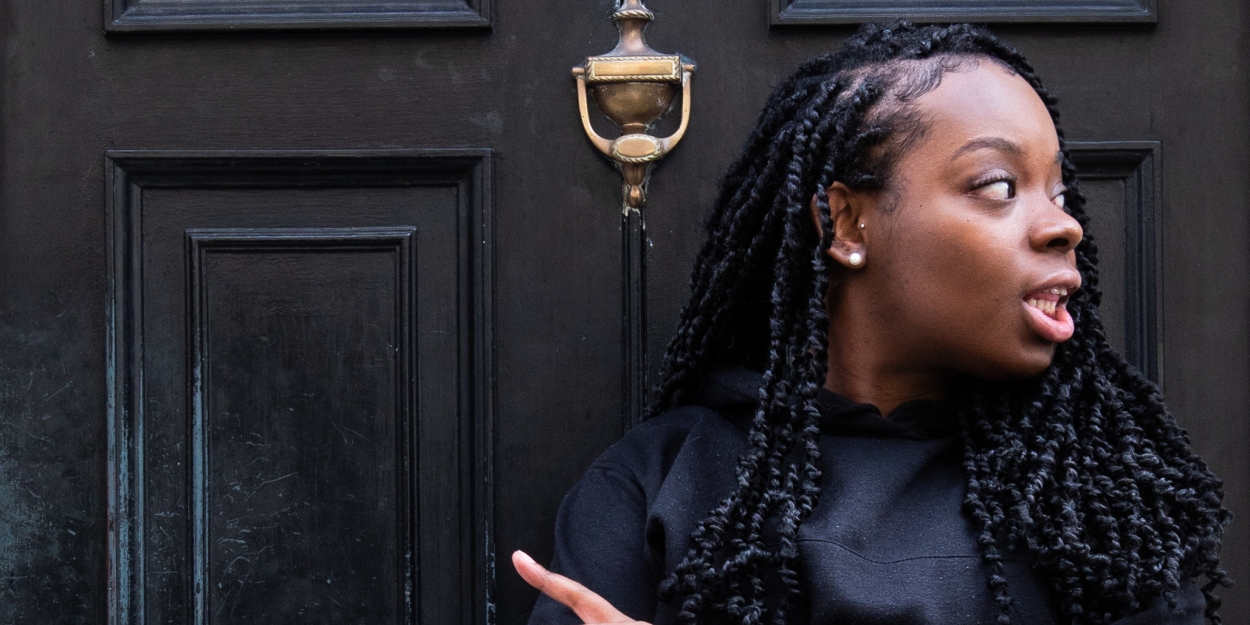Ivo van Hove’s adaptation of Jean Cocteau’s 1930 play The Human Voice, playing at the Harold Pinter Theatre for just three weeks, is a strange thing – perhaps something that we should expect from the combination of the surrealist French writer and the innovative Belgian director. Ruth Wilson reunites with van Hove, having previously worked together on Hedda Gabler, to star in the one woman play. Wilson had been due to perform in an ambitious 24-hour production of The Second Woman before it was cancelled due to the first lockdown. This is a much more concise affair, coming in at just 70 minutes.
A glass rectangle, surrounded by black on all sides, floats in the middle of Jan Versweyveld’s set, revealing an empty room behind the glass. She (Wilson) is waiting on a phone call but is being frustrated by crossed lines – a feature of the 30’s. Finally, her lover calls. From here we get one side of the telephone conversation but it is clear that her lover has ended the relationship and She is not ready for it to end.
 |
| Ruth Wilson in The Human Voice. Photo: Jan Versweyveld |
Wilson is fantastic as the rejected woman still clinging to the relationship despite the clear signs it is over. van Hove’s edits suggest that there is madness at play amongst the sorrow, removing She’s attachment to the telephone and moving into a dramatic monologue, which questions the initial premise of the play in the first place. The references to sleep without dreams seems like a deliberate reference to Hamlet. The section seems to prompt us to question whether there is even a caller. However, the telephone, and the lover, soon return.
Versweyveld’s glass window raises the inevitable feeling of being a voyeur into this woman’s break-up. When Wilson slides the glass window open we are not just met by the sounds of the city below, cars and sirens and music far below, but we are also met by a blast of cold air – immediately creating the feeling of really being there. It is a simple but powerful technique. Versweyveld’s lighting is glorious too, with a burst of orange sunset slowly flooding the room until it is suddenly extinguished. Between scene moments are underpinned by a striking mournful cello.
.jpg) |
| Ruth Wilson in The Human Voice. Photo: Jan Versweyveld |
But there are issues too; the use of Radiohead’s How To Disappear Completely is compelling, with its refrain of ‘I’m not here, this isn’t happening’ perfectly capturing She’s actions. However, its second appearance, which includes playing almost the entirety of the 6 minute song, while Wilson is frozen against the back wall of the set, seems like an over-indulgent move by a massive Radiohead fan (though I can’t confirm if van Hove is a superfan or not.)
And there are strange choices in van Hove’s direction of Wilson; a scene where Wilson imitates her dog is awkward and unnecessary. There is an argument too that Cocteau’s play falls foul of standard tropes of weak women who will break-down if they are abandoned by their strong men. But despite this, The Human Voice is still a gripping piece of theatre with a powerful performance by Wilson at its core.
The Human Voice is at the Harold Pinter Theatre, London, until 9 April















